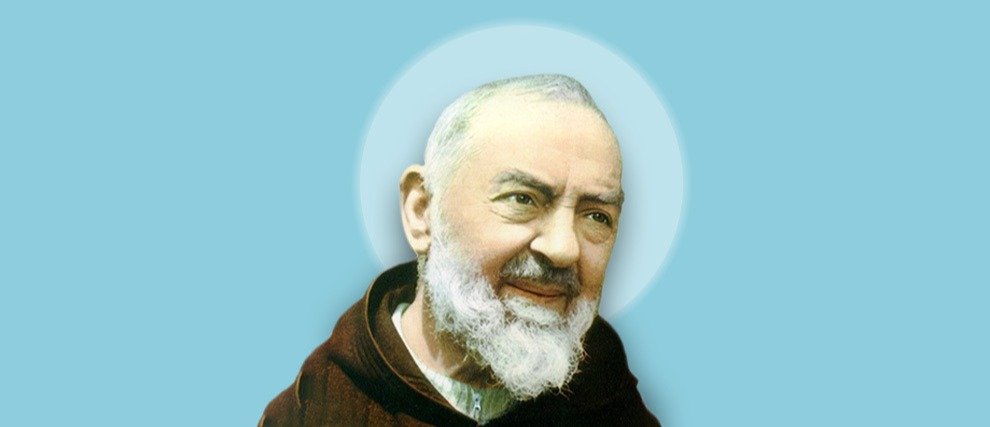Praise to God
The Catechism of the Catholic Church, (para 2639) explains that “Praise is the form of prayer which recognizes most immediately that God is God. It lauds God for his own sake and gives him glory, quite beyond what he does but simply because He Is. It shares in the blessed happiness of the pure of heart who love God in faith before seeing him in glory…. Praise embraces the other forms of prayer and carries them toward him who is its source and goal: the ‘one God, the Father, from whom are all things and for whom we exist.”
Who do Christians Worship and Praise?
The God of Christians and Jews does not have whims, like human beings or pagan gods, but is consistent and steadfast (“All the paths of the Lord are steadfast love and faithfulness, for those who keep his covenant and his testimonies” Psalm 25:10) and immovable and remains the same from age to age.
It is because we believe that God is good and God is Love itself and that nothing bad ever comes from Him that we can trust Him enough to praise Him in all circumstances.(Hosea 11:1,3-4: “When Israel was a child, I loved him, and out of Egypt I called my son...Yet it was I who taught E’phraim to walk, I took them up in my arms but they did not know that I healed them. I led them with cords of compassion, with the bands of love, and I became to them as one who eases the yoke on their jaws, and I bent down to them and fed them.”) Even a religion that believes in a single God but does not know that God is Love, cannot give sincere praise to God, since it still fears God’s whims, and cannot trust the deity. It is incumbent on us personally, to try to progress our faith through understanding and knowledge and listening to our God, by the grace of God, so as to be able to be sincere in our praise of God.
Old Testament Praise to God
Yahweh tells us repeatedly that there are no other gods than Him, and proves it (1 Kings 18:19-40). So looking at any other so-called god is like looking into an abyss of our own guilt and fears, since there is nothing like God. Because He loves us so much, calling on any other god(s) is detestable to Him - He knows where it will lead (nowhere good), and His chagrin is that He is not called upon Himself because He wants to help us. (Hosea 7:14: “They do not cry to me from the heart, but they wail upon their beds; for grain and wine they gash themselves..” Gashing themselves was a pagan practice.)
Possibly the oldest form of praise and thanksgiving which is mentioned in the Holy Scriptures is when Noah (9th generation after Adam), after being rescued from the Flood by God (who had instructed him how to build the ark), built an altar to Yahweh and presented offerings to God on the altar. It was a way of acknowledging God as his saviour, his family’s saviour and the world’s saviour and thanking Him. As a result, Yahweh made the first covenant with man and said he would never again strike down every living thing (Genesis 8:20 to 9:17). The sign of this covenant is the rainbow. Noah also is the first in the Scriptures to use an expression of Praise that we are more used to:“Blessed be Yahweh” (Genesis 9:26).
Why Praise God?
Does God need praise? There are many reasons to give praise to God and they are not because God might need praise. If that were the case, God would not be God. He does not need mankind. But the fact is that God created us out of love, since He is all love. And He gave us his laws also out of love because they were protective laws. God is concerned with fairness, justice, peace, generosity, forgiveness. We praise God because we know that all good comes from Him and only good. We know this both instinctively (which is why we have such a strong impulse to thank when something good happens), and because we have been taught that all good things come from God through the Holy Scriptures, the Mass and Sacred Tradition.
In the Mass, the Holy Spirit, having reminded us of God’s gracious action towards humanity, inspires thanksgiving and praise (the doxology): “Praise to you, Lord Jesus Christ” and “Thanks be to God”. We are also reminded of the fact that the Angels worship the Lord continuously, by the words “Holy, Holy, Holy, Lord God of Hosts, Heaven and Earth are full of your Glory, Hosanna in the Highest!”
Who Will Teach Me to Praise God?
The desire and words to praise God come from the Holy Spirit. We see in Luke 1:47-55 Mary’s Magnificat, which she spoke upon meeting her cousin Elizabeth, as Elizabeth carried John the Baptist in her womb and Mary was pregnant with Jesus, the Messiah. She begins: “My soul magnifies the Lord, and my spirit rejoices in God my Saviour”. Elizabeth, herself, on seeing Mary approach her, had blessed her and said: “blessed is the fruit of your womb! And why is this granted me, that the mother of my Lord should come to me?” - which knowledge only the Holy Spirit could have revealed to her. So, to learn to praise God, we should do so from the heart and ask the Holy Spirit to teach us how to do so, and then keep asking how to do so better and better.
There are many online resources and various congregations such as those connected with Hozana can offer help. In terms of a vocabulary of praise, the Companions of the Cross, for instance, offer a Word file which contains terms of praise.
How do You Praise God?
There are perhaps as many ways of Praising God as human beings on earth and in Heaven. But, in terms of usual practice, we can build altars to him, acknowledge his power with words, such as “majestic in sanctity”, thank God and bless His Holy Name (which means to cover him with good wishes and love), we can dance in delight to God, we can sing His praises as did David in so many of the Psalms (psalm 35 “I will give you thanks in the great assembly, praise you where the people gather” ), we can create artwork to give Him glory and to depict His works for mankind and to symbolise God’s majesty, we can make Sacred music to give him Glory, we can write Sacred poetry to God the Greatest Poet, we can speak out the awe that God’s actions inspire in us, as in Mary’s Magnificat (Luke 1:46-55), And on a daily basis, a straightforward approach is to say the Office of the Church, such as Lauds, Vespers and Compline, and above all the Holy Mass, which are full of Praises for God.
There is, in Christianity, no occasion (other than after committing a sin), for which God cannot be thanked, blessed and praised. We often do so for a particular occasion, therefore, but it is also recommended to praise God at all times. (Psalm 34:1) (1 Thessalonians 5:18 “give thanks in all circumstances for this is the will of God in Christ Jesus for you.”).
We can see from this that Praise to God begins with humility and a genuine movement of thanks, acknowledging that God is Saviour, God is powerfully good and acts in our favour. It is a human act which is addressed to God Himself and concerns God, first and foremost. God is the intended recipient of this act. It shows that whoever is giving God praise realises that God is worthy of Praise. It is a reasonable reaction of gratitude, relief and love on the part of man, but it is also an acknowledgement that God saves and that He is all powerful.
Praising God through the Use of the Name of Jesus
The name of Jesus is called the “name above all names” in Philippians 2:9 - 11, “God has highly exalted him and bestowed on him the name which is above every name, that at the name of Jesus every knee should bow, in heaven and on earth and under the earth, and every tongue confess that Jesus Christ is Lord, to the glory of God the Father.” which makes clear that merely speaking and believing in the name of Jesus is giving Glory and Praise to God. Hence, “the fruit of lips that acknowledge his name”, is a sacrifice of praise, a hymn of praise to God.
The Rosary
The great prayer of the Rosary is also a prayer of praise to the Holy Trinity, whether one realises it or not. It begins with the Creed, which affirms that God created all things, visible and invisible. It continues with the Lord’s Prayer, which, as we have seen, begins with praise to God. The Hail Mary, itself, starts, as the Archangel Gabriel did, with affirming Our Lady’s special attribute (“full of grace” - whose grace? - the Grace of God) and blessing her and the fruit of her womb, Jesus. Finally, the “Glory be”, which is said at the end of each decade, is pure praise: “glory be to the Father, to the Son and to the Holy Spirit, as it was in the beginning, is now and ever shall be, world without end. Amen”.
Praising God With Intention
It is also possible to be in a state of mind of depression, anxiety, or generally feeling less than enthusiastic about anything, perhaps tired or unwell. In such a situation, one does not feel, necessarily, like praising God. It may be the furthest thing from our mind. But if it does occur to you, then you can praise God from the intention, rather than from the feeling(s) you have. And when you do, as you do, you will generally find your spirits uplifted. Why? Because we were designed by God to love Him, to Adore Him. We were made to give praise to God.
Praise God with Hozana!
Hozana enables you to discover hundreds of spiritual suggestions to pray and praise God regularly. Come closer to the Holy Spirit through 7 Sundays with the Holy Spirit. Learn to pray the Psalms, so full of praise, through art with professional artist Anne Laure Lavagna, who offers Let's pray the psalms through painting. Learn from the Scriptures themselves and from the Saints with Reading & Meditation of the Daily Gospel.

